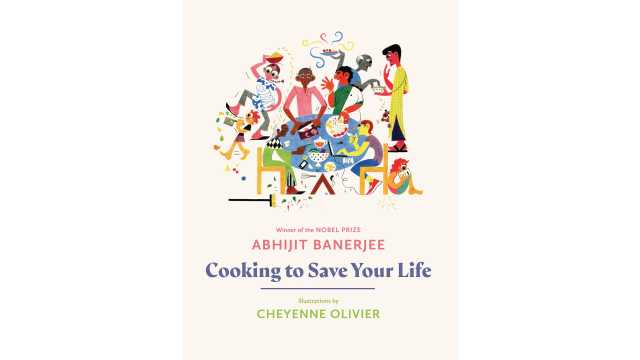Q&A with Preeti Mistry

Preeti Mistry is known for her farm-fresh California twist on classic Indian food — and for unapologetically speaking her mind. A Top Chef participant, a James Beard Foundation nominee, and a founder of the erstwhile Juhu Beach Club and Navi Kitchen in Oakland, California, Mistry is partial to comfort food that pays homage to her heritage in a vigorously personal way.
Mistry believes food should convey “a sense of place on a plate” — even if that idea of home is complicated, as it is for her. Mistry’s father grew up in Uganda and her mother in Mumbai; both have Gujarati backgrounds and have lived in Trinidad as well. Mistry herself was born in London and moved to the United States as a child.
Without diluting flavors or traditional techniques, Mistry incorporates all these influences into her kitchen and diet. Her The Juhu Beach Club Cookbook is full of insights about how fluid the idea of authenticity can be. Mistry says, “There’s no wrong or right way to approach cooking, as authenticity comes from within.” For her, a dish is true to her roots when its heart and soul is Indian, even if the ingredients and presentation may not be traditional.
Roundglass Food: What is your favorite ingredient?
Preeti Mistry: Probably ginger. I think I use ginger more than any other aromatic ingredient. It’s so versatile in both savory and sweet dishes and always adds a bright dimension.
RG Food: What’s a meal that you associate with wellbeing?
PM: The “Mom's Guju Chili” (mung dal cooked in tomato puree and spices) in my book is one of the most wholesome comforting dals. You just feel like you are doing something good for yourself when eating it.
RG Food: What’s a mindful practice you follow while cooking and eating?
PM: Cooking for me is an act of love, so I am often thinking about the dish I'm making, and who I'm making it for, and how much I think they are going to enjoy it. I'm always thinking about cooking and eating as an act of love for others or oneself.
RG Food: What words of wisdom do you associate with food?
PM: All cuisines can be made simple and elevated. No one cuisine has more value than another.
RG Food: What aspect of cooking do you find relaxing?
PM: For me cooking is something that comes very naturally, so it's like a sort of meditation. It's nice to just put on some music and go with the flow. Focusing your mind on something tactical is also an important practice when we spend so much time on our phones or laptops. There's also some instant gratification in creating something delicious in 30 minutes or an hour — or an all-day project!
RG Food: What is a mindful practice you associate with food?
PM: The combination of the weather, the season, and the type of eating experience you are looking for is a daily opportunity to check in with yourself and how you are feeling in your body. What is your body craving? What does your body need? It's important to take time to think about these things on a daily basis.
RG Food: Do you have a kitchen hack for eating healthier?
PM: Always have easy salad items on hand to add to a heavier meal. I like to chop things like carrots, radishes, and beets in advance, and marinate them in lemon juice, etc. Then you can toss that in with some lettuces and always have an easy salad on hand.
RG Food: If you could invite anyone over for dinner, who would you call and what would you serve them?
PM: Maybe Chef Raji Jallepalli. She was an Indian woman chef in the ’90s, who passed away when she was only in her 50s. I would serve her a whole tasting menu of my signature dishes.
RG Food: What’s an herb (or elixir, or fruit, or tea) that you associate with healing?
PM: I make a tea when I'm sick that's steeped turmeric, minced ginger, lemon juice, honey, and black pepper, and it's the best thing.
RG Food: What do you mean when you say flavor adventure is important to you?
PM: I want to eat and cook food that makes people stop and take notice.
Key Takeaways
- It's important to cook with intent.
- Adopt mindful practices in cooking.
- Authenticity enriches culinary traditions.





